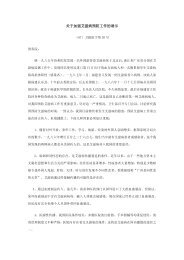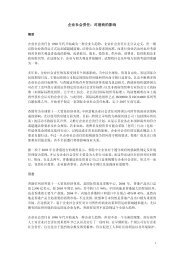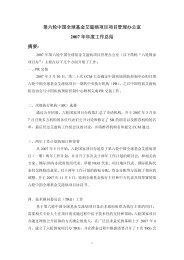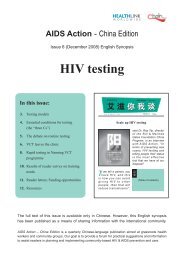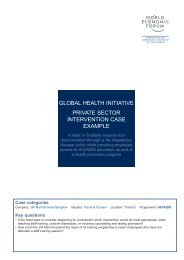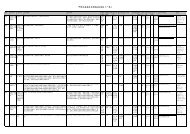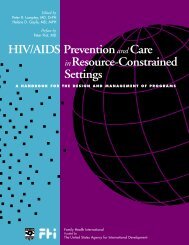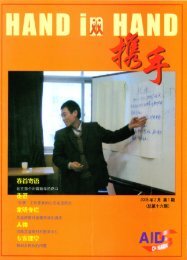The Training of Trainers Manual - UNFPA
The Training of Trainers Manual - UNFPA
The Training of Trainers Manual - UNFPA
Create successful ePaper yourself
Turn your PDF publications into a flip-book with our unique Google optimized e-Paper software.
Handout 12 • Self-Care 12<br />
Apply these suggestions to help trainers and peer educators relax, reduce stress, and invite balance<br />
into their lives.<br />
Breathe deeply. Have you ever noticed your breathing when you are feeling stressed or moving too<br />
fast It is probably shallow and tight. Take a few slow, deep breaths to relax.<br />
Take a walk. Get out. Go shopping. Play sports. Exercise not only helps burn <strong>of</strong>f nervous energy but<br />
also allows you to leave the place causing you stress.<br />
Eat well. Busy people <strong>of</strong>ten skip meals or eat fast food too frequently. Heavy foods, too many or too<br />
few calories, and inadequate nutrition can make you feel lethargic. Eat vegetables, fruits, grains, and<br />
lean proteins – nutritious, high-energy foods.<br />
Drink water. Most people do not drink enough water and feel dehydrated, tired, and achy. Next time<br />
you feel dry or in need <strong>of</strong> a liquid ‘pick me up’, drink water instead <strong>of</strong> c<strong>of</strong>fee, tea, or high-sugar drinks.<br />
Experts say that once you feel thirsty, you are already dehydrated, so drink up.<br />
Slow down. Do not worry; you do not have to stop. By making sure your mind is actually where your<br />
body is, you will feel (and appear) less scattered, think more clearly, and be more effective. Timemanagement<br />
and delegation strategies can help avoid confused priorities and schedule conflicts.<br />
Team up. If you are a stressed-out trainer or peer educator, you may not be letting other people help<br />
you get things done – whether delegating tasks to other peers or trainers, partnering with other groups,<br />
or simply networking for support and advice. Sharing the load with other people and staying connected<br />
to positive people can help prevent stress.<br />
Sleep well. A good night’s sleep is not a luxury; it is a necessity for clear-thinking and mindful<br />
responsiveness. Aim to get a good night’s rest by watching what you eat before you go to bed, turning<br />
<strong>of</strong>f the television and computer, and taking a few minutes to slow down and transition from ‘busy day’<br />
to ’restful night’ – perhaps by sipping some herbal tea and listening to soothing music.<br />
Loosen up. Tight muscles and narrow, critical thinking exacerbate stress and propel you towards<br />
burnout. Find ways to stretch both body and mind. Take a bath. Pray. Gentle stretching loosens<br />
tight muscles, while similar ‘mind exercises’ or meditation can help lessen chronic perfectionism<br />
and criticism.<br />
Have fun. Laughter is great medicine, so surround yourself with fun things and people. Watch your<br />
favorite funny movies, play with your kids or animals, choose to be around people who make you laugh,<br />
or just laugh at yourself when you get overly serious or unhappy.<br />
Get away. Whether for an hour, a day, or a week, remove yourself from your work and concentrate 100<br />
percent on someone or something else. Recharge yourself today so you are more productive and can<br />
enjoy your work tomorrow.<br />
Section 4. Participant Handouts<br />
155



